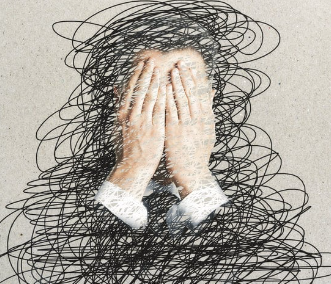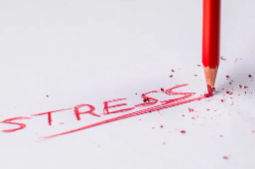Why is Stress Awareness so Important?

Stress is a funny old thing, right?
On one hand, stress is what ensures we get things done. It makes us stick to deadlines, keep to plans and reach goals.
On the other hand, stress can be debilitating when it’s being dealt with on a long-term basis.
The tagline for our wonderful campaign this month is
#StressAffectsUsAll
because it really does. Whether you consider yourself a “stressy” person or not, we actually all deal with stress, on some level, every single day.
So how do we know when stress becomes too much, or when good stress turns into bad stress?
Stress is the trigger for our fight or flight hormones...
it is designed to get us out of dangerous situations and forces our brain to make decisions quickly - which at some point in our ancestry, would have saved our lives. These days, daily stress tends to be less about being eaten alive (in most scenarios…) and more about organising our lives to run smoothly.

In my opinion, stress becomes “bad” when it morphs in to long-term stress. Dealing with a stressful situation for an extended amount of time, often leads to mental ill health.
I would label a situation as “long-term stress”, when a person feels as though it is all that they can think about, they my feel as though they have lost control of the situation, or it feels as if the problem is consuming them. Luckily, there are methods and strategies which can be used to help someone regain control of a situation. Speaking to a mental health professional will help determine which methods worth for you. Everyone is different and unfortunately, there is not a "one size fits all" type of solution.
However, in our mission to educate, Equitas will be outlining some of the more simple methods throughout this campaign in order to try and help any one who feels as though stress has got on top of them and perhaps give them a start in the right direction.
Numerous factors can make someone’s experience of stress worse... Examples include:
Limited social support
Feelings of isolation
Lack of self confidence in dealing with the stressor
Feelings of helplessness when trying to fix the situation
Again, there are ways and means of dealing with these sorts of situations, but it is important to speak to a professional if you are experiencing any of the above feelings.
My number one piece of advice to start dealing with long term stress is to find someone to speak to about it. The saying goes “a problem shared is a problem halved”, and speaking out loud to someone, even a friend, can start to help you put your thoughts into order. Your friend doesn’t have to offer any specific advice - just a listening ear may help.
Another way to deal with stress is by writing down your thoughts and feelings around the stressor in order to gain some clarity about what aspect of the situation is affecting you. By writing things down, your thoughts tend to become more ordered and you may start to see a way out of the tangle of your thoughts.
There are so many reasons why someone may experience long-term stress. Examples include:
Financial difficulties
Grief
Relationship problems
Illness/Injury
Difficulties at work/school
However, it is important to note that even positive changes in someone’s life can also cause long term stress, such as getting married or having children.
Long-term stress can lead to the following cognitive changes and can range from mild to severe:
Difficulty in concentrating or thinking
Memory problems
Negativity or loss of confidence
Constant worrying
Difficulty in making decisions
My Own Learning Curve:
Personally, a sure sign that my own stress has become “bad”, is when I start to lose the ability to make decisions. I can’t even decide what to have for dinner, or even what clothes to wear, when I have something stressful on my mind!
I’ve also realised that I will do absolutely everything I can to put off trying to solve the situation. Distracting myself with other tasks, to me, is much easier than actually sitting down and thinking through what I need to do to get myself out of this stressful state. I have now learned that by doing this I am, ironically, making myself more stressed. I am currently doing a lot of work on myself to prioritise a stressful situation, rather than pushing it to the back of my mind.
One of the ways I am tackling this is by giving myself allocated “worry time” during the day.
I will sit down and work through stressful situations for 30 mins per day, but then do not let myself think about them for the rest of the day. This allows me to be fully present in my daily life, without being distracted by worries, but also gives me the time I need to work through them sensibly and logically.
It’s a tip that actually came from my mum, but I would urge anyone to try it who feels as though a certain situation is getting on top of them!
By learning tips and tricks that work for you, you can start to build up resilience to stress and learn how best to deal with it for you. It is important to note here that everyone is different, we all react to stress in different ways, and what works for one, may not work for another.
If one thing were to come out of this campaign, I’d like to it to be that we teach our followers how to recognise when stress is becoming a problem, have tools to help relieve it, and to prevent it escalating into ill mental health.
If you would like to be invovled or show your support for the #StressAffectsUsAll Campaign - please get in touch with us via our Instagram @EquitasEire





